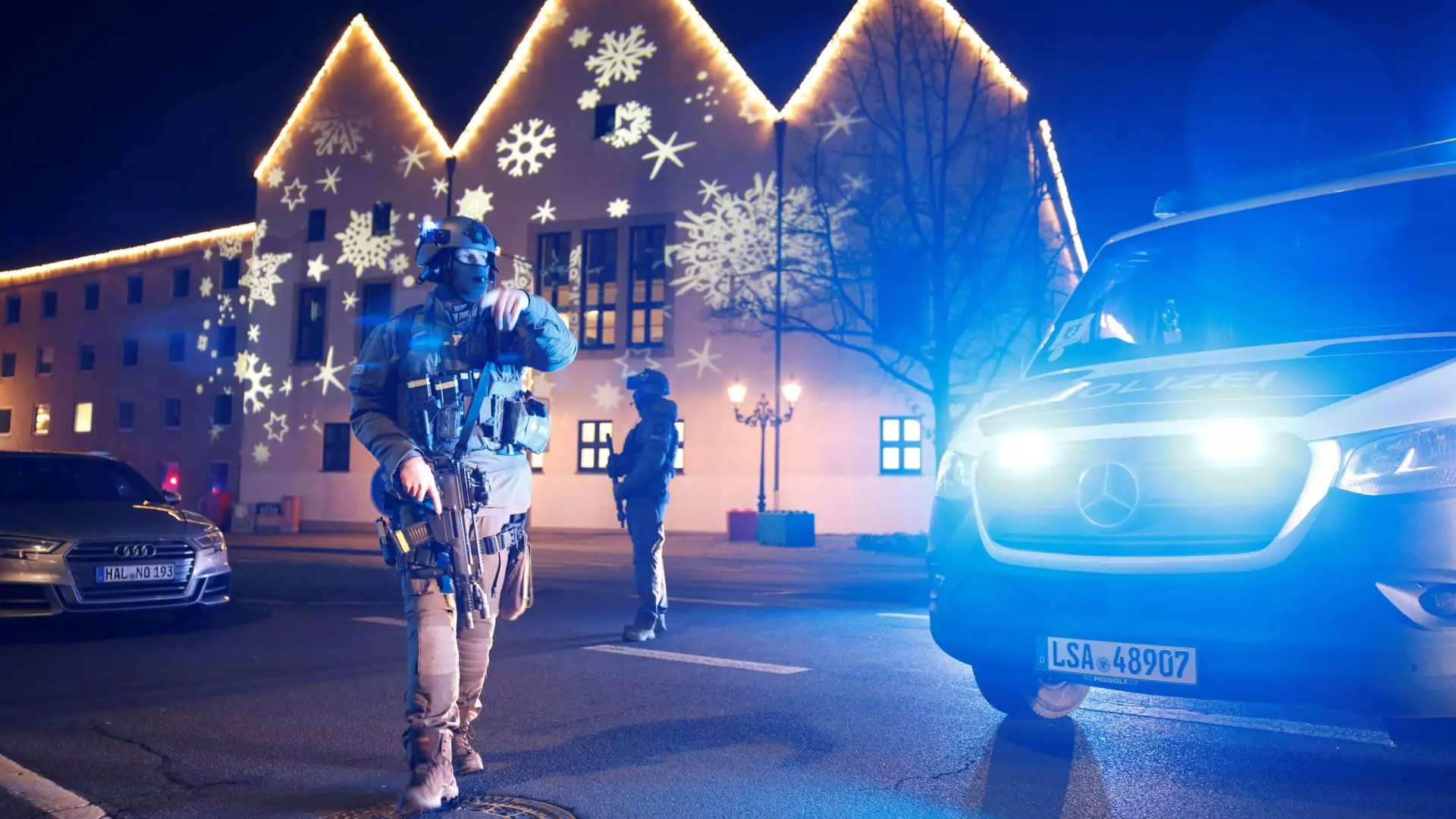On a seemingly ordinary Friday evening in Magdeburg, Germany, a devastating attack unfolded, forever altering the festive atmosphere of a Christmas market. Taleb al-Abdulmohsen, a 50-year-old Saudi Arabian doctor, stands accused of this tragic event, which resulted in the loss of five innocent lives, including a nine-year-old boy, and left around two hundred others injured. This shocking incident, characterized by planned violence, raises complex questions about motives and broader societal implications related to immigration and radicalization.
Witnesses described a harrowing scene as the suspect’s black BMW barreled through the market, circumventing security measures intent on protecting the public from exactly such tragedies. The driver navigated through an emergency vehicle gap, an act that points to a premeditated intent rather than a spur-of-the-moment decision. Investigators are probing whether he intentionally disabled the car’s braking system to maximize the impact. The police apprehended him minutes after the rampage, marking the climactic end of a traumatic ordeal witnessed by many.
Despite some restrictions imposed by German privacy laws, authorities have identified al-Abdulmohsen as the primary suspect, a fact confirmed by multiple U.S. officials. Having emigrated to Germany in 2006 and seeking asylum in 2016, his story adds another layer to this grim narrative. He initially claimed threats from his homeland, yet his subsequent actions suggest a troubling disconnect from the values typically promoted in a society that has afforded him refuge.
Pursuing a profession in psychiatry, al-Abdulmohsen’s employment was confirmed by a clinic in Bernberg, but his absence from work due to “vacation and illness” raises questions about what might have influenced his state of mind leading up to the attack. The duality of his existence in Germany—living as a healthcare worker while contemplating an act of violence—presents a troubling juxtaposition emblematic of a deeper strife facing individuals caught between cultures.
Analyzing the Motivations
While officials are still investigating the precise motives behind the attack, some evidence points toward disillusionment with the treatment of Saudi Arabian refugees in Germany. Al-Abdulmohsen’s expressed frustrations toward German authorities indicate a man burdened by both his circumstances and perceived injustices. His declaration that “the nation that is actively criminally chasing Islam critics to ruin their lives is the German nation” speaks volumes about his mindset and the possible influences shaping his worldview.
The ramifications of such a mindset cannot be overstated. In an era marked by heightened immigration and cultural tensions, individuals like al-Abdulmohsen, feeling marginalized or dissatisfied, may turn to violence as a means of expressing their grievances. His actions serve as a chilling reminder of how societal divisions can escalate into tragic outcomes.
This attack has revived discussions about security measures in public spaces, especially in light of instances where vehicles have been weaponized in urban terrorism. Former homeland security officials have described this situation as alarming for security agencies, emphasizing the unpredictability of such acts. The fact that al-Abdulmohsen operated independently asserts a fear that is difficult to manage: the threat emerging inexplicably from someone within the fabric of a community.
Moreover, al-Abdulmohsen’s history of engaging with extremist rhetoric and alignment with far-right political movements, such as Germany’s Alternative for Germany (AfD), underscores the dangers of radical ideology influencing vulnerable individuals. These connections paint a complex picture of a man who struggled to reconcile his identity in a foreign land with the violent feelings he harbored.
As the investigation unfolds and the community grapples with the aftermath, this incident serves as a stark reminder of the complexities of modern societal integration and the dire consequences of unaddressed grievances. The racial, cultural, and political fractures present in societies today cannot be overlooked. Moving forward, there must be a concerted effort among communities, policymakers, and mental health professionals to foster dialogue and understanding, helping to prevent similar tragedies from occurring in the future. While the losses in Magdeburg are immeasurable, they must inspire reflection and action to avert future acts of violence.


Leave a Reply